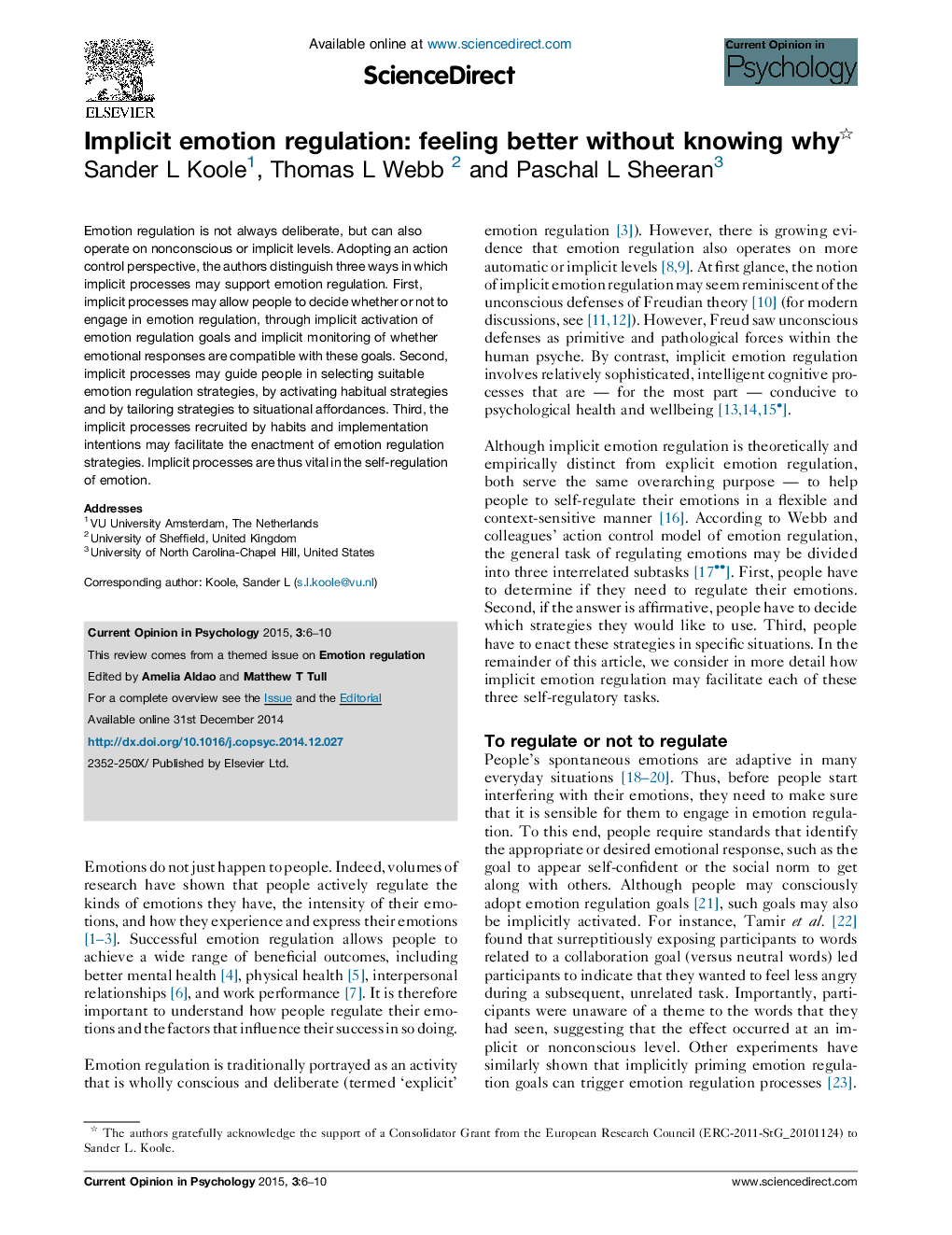| کد مقاله | کد نشریه | سال انتشار | مقاله انگلیسی | نسخه تمام متن |
|---|---|---|---|---|
| 879372 | 1471326 | 2015 | 5 صفحه PDF | دانلود رایگان |
• People can regulate their emotions on a nonconscious or implicit level.
• Implicit processes allow people to decide whether or not to engage in emotion regulation.
• Implicit processes help people to select suitable emotion regulation strategies.
• Implicit processes help people to enact emotion regulation strategies.
• Implicit emotion regulation contributes to health and well-being.
Emotion regulation is not always deliberate, but can also operate on nonconscious or implicit levels. Adopting an action control perspective, the authors distinguish three ways in which implicit processes may support emotion regulation. First, implicit processes may allow people to decide whether or not to engage in emotion regulation, through implicit activation of emotion regulation goals and implicit monitoring of whether emotional responses are compatible with these goals. Second, implicit processes may guide people in selecting suitable emotion regulation strategies, by activating habitual strategies and by tailoring strategies to situational affordances. Third, the implicit processes recruited by habits and implementation intentions may facilitate the enactment of emotion regulation strategies. Implicit processes are thus vital in the self-regulation of emotion.
Journal: Current Opinion in Psychology - Volume 3, June 2015, Pages 6–10
